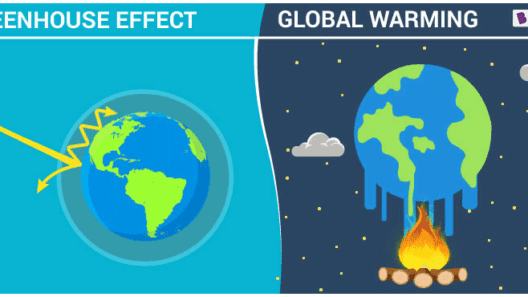Stephen Hawking, renowned for his groundbreaking work in theoretical physics, particularly in the realms of black holes and the nature of the universe, held an array of perspectives that extended beyond the cosmos. One of the pressing issues that humanity faces today is climate change, a phenomenon that threatens not only our environment but also the fundamental structures of society. While Hawking primarily focused on astrophysics, some of his insights touch upon environmental matters and offer a contemplative lens through which to examine global warming.
Hawking’s outlook often revolved around the concept of human survival in the face of cosmic and terrestrial examinations. In his later years, he expressed concerns about the existential threats posed by climate change. He posited that humanity’s survival hinges on our ability to adapt and innovate in the face of rapidly changing environmental conditions. This perspective suggests that the potential for human creativity, innovation, and resilience may prove vital in overcoming global warming.
One of Hawking’s noteworthy warnings pertained to the accelerating pace of climate change and its catastrophic potential. He highlighted the role of greenhouse gas emissions in exacerbating atmospheric conditions, leading to increasingly severe weather patterns, rising sea levels, and widespread ecological disruption. In light of these observations, he urged a global pivot toward renewable energy sources. By transitioning from fossil fuels to solar, wind, and other sustainable energy forms, Hawking believed that we could curtail emissions and mitigate the human activities that contribute to global warming.
Moreover, Hawking recognized the importance of global collaboration in addressing climate change. This aligns with his view of humanity as a collective entity facing existential threats. He posited that the geographic borders that often divide nations should not hinder cooperation against a common enemy like climate change. His advocacy for an unprecedented level of international cooperation echoes the urgent need for a unified effort in combating global warming, highlighting the necessity for transcending political and economic boundaries in the pursuit of ecological sustainability.
In conjunction with these themes of innovation and collaboration, Hawking also hinted at the importance of education in fostering environmental awareness. He advocated for a paradigm shift in how we educate future generations. By embedding sustainability into educational frameworks, he believed that a new generation equipped with knowledge and ethical responsibility could lead the charge in combating climate change. This emphasis on education serves as a clarion call for elevating public discourse on environmental issues and empowering individuals with the understanding necessary to advocate for sustainable practices.
While battles against cosmic anomalies may seem far removed from the fight against climate change, the connection lies in the broader narrative of human survival. Hawking’s reflections encourage us to envision humanity not as a conqueror of nature but as a steward of the planet. This shift in perspective is crucial; it necessitates a reevaluation of our relationship with the natural world. Instead of exploiting resources with abandon, Hawking’s theorizing beckons us to adopt a mindset of guardianship, sustaining not only human life but the entirety of Earth’s ecosystems.
Hawking’s legacy also includes a cautionary tale regarding the potential for technology to exacerbate climatic crises. Although he celebrated the advances of modern technology, he maintained that without ethical considerations and responsible stewardship, these innovations could lead to dire consequences. This duality presents a critical perspective on technological advancement: while innovations have the potential to aid in creating sustainable solutions, they can equally contribute to global warming if not guided by ethical frameworks.
Furthermore, Hawking’s work illuminates the intrinsic connection between climate change and other global issues, including poverty, inequality, and social justice. He recognized that climate change disproportionately impacts the most vulnerable populations, exacerbating existing inequities. This intersectionality propels us to consider climate action not merely as an environmental imperative but as a socio-economic necessity. The response to climate change must also tackle systemic inequalities, thus ensuring that the most affected communities receive support and are actively involved in the solution-making processes.
Hawking’s warnings about existential threats are indeed sobering, and they call for immediate action and profound introspection. The phenomena of climate change demand attention not only for their environmental impacts but also for their potential to challenge the fabric of human civilization. His conviction encourages a narrative shift—considering climate change not as a distant problem but as an urgent, present-day crisis that necessitates our collective response. He urged us to contemplate the future and our role within it.
As we navigate these turbulent waters, informed by Hawking’s insights, it becomes clear that addressing climate change requires a multifaceted approach. Innovation, education, collaboration, and ethical considerations must intertwine to foster a more sustainable future. In embracing these principles, humanity can reflect on Hawking’s legacy—not just as relentless seekers of knowledge about the universe, but also as custodians of our planet, committed to ensuring a viable future for subsequent generations.
In conclusion, while Stephen Hawking may not have been an environmental activist in a traditional sense, his reflections and theories resonate profoundly within the climate discourse. His clarion calls for awareness, innovation, and collective action offer a framework for addressing one of the gravest threats to our world. By integrating his insights into our understanding of global warming, we can inspire curiosity, foster engagement, and mobilize efforts to confront this urgent crisis, collectively paving the way for a more sustainable and equitable future.







